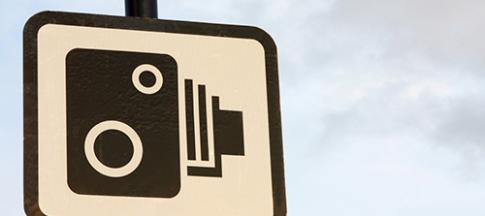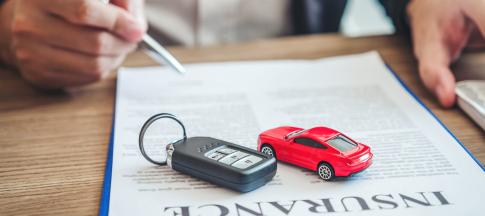
In the UK, it’s a legal requirement for your vehicle to have a registration plate fitted. But there’s a number of restrictions that you need to consider before you go ahead and stick any old plate on your motor.
Incorrect plates could land you with a fine of up to £1,000 and will mean you fail your vehicle’s MOT. So, how do personalised plates work?
What legal requirements are there with standard number plates?
Since 2001, the standard format for a vehicle registration plate has been:
- two letters (the region in the country where your vehicle was first registered)
- two numbers (when it was issued)
- three randomised letters
How do personalised number plates work?
If you want to buy an alternative plate for your vehicle, you must first make sure that you’re adhering to the government requirements for personalised plates.
A private number plate must:
- be made from a reflective material
- display black characters on a white background on the front plate
- display black characters on a yellow background on the back plate
- not have a background pattern
Where can I buy a personalised number plate?
You can buy your plate from a number of different websites, including the DVLA Online.
You must make sure that your personalised plate is fitted by a registered number plate supplier, and you can find your nearest registered number plate supplier here.
Remember that you must provide formal identification as well as your vehicle registration document to prove that you are entitled to drive the car.
Check what specifications your car must fulfil in order to apply for a private number plate.
How much do personalised number plates cost?
Personalised number plates can range in price depending on the desired format, starting at a couple of hundred pounds and going into the thousands.
What personalised number plate can I have?
Searching for a personalised number plate is simple, and can be done using the DVLA’s online database. Just search for your desired plate and see its price and availability.
Many choose an abbreviation of their name, initials or date of birth.
The DVLA have previously banned numerous applications of number plates that are considered offensive or rude.
A spokesperson for the agency commented that they have a “clear policy of withholding potentially offensive registration numbers.”
Can I transfer a personalised number plate to another vehicle?
You'll be able to transfer your personalised number plate if you are the registered keeper of the vehicle.
If you sell your vehicle before you move the registration, you won’t be able to transfer it. The DVLA operate on the basis that if you don’t move it, you’ll lose it.
Will having a personalised number plate increase my insurance?
Every insurance supplier operates differently, with some categorising a personalised number plate as a form of car modification.
However, this isn’t always the case and you should check with your own insurance company to find out how you may be affected.
At Admiral, we don’t treat personalised number plates as a vehicle modification.
If you have car insurance with us, you’ll need to change the registration on your policy once the number plate has been fitted to the car and the car's V5 document has been changed.
Get in touch with us to do this.
If you don't let the DVLA know, there's a risk that they will think the vehicle is uninsured.
Which other types of vehicle require a number plate?
Motorbikes or motor tricycles are only required by law to have a number plate on the back of the vehicle. The number must be displayed across two separate lines.
Towing
If you’re towing a trailer behind your vehicle, you need to make sure that both your car and the trailer display the same registration number.
This plate must be positioned at the very back so it can be easily seen by those behind you.
Bicycle
There’s currently no law in place that requires cyclists to fit a registration plate onto their bike.
However, there’s been a lot of conversation around the idea of giving bicycles number plates for some years.
While no law has been put in place yet, we may see things change over time.
How can you protect your number plate against theft?
Number plates can be used to disguise or ‘clone’ your car in incidents of insurance-dodging or fuel theft.
Roland Head, founder of SimpleMotoring.co.uk, said that “stolen car number plates are commonly used by criminals for all sorts of offences, including speeding, parking offences, fuel theft from garages and vehicle identity cloning.” But how can you avoid this?
Firstly, follow our usual advice to keep your car thief-proof, including parking in a well-lit area, or even in a storage space if possible.
If you want to take it one step further, consider opting for theft-resistant number plates. These can be a little more expensive than regular number plates but are designed to take longer to remove from a car, which can put criminals off.
If you follow our steps but you are still the victim of number plate theft, contact the police immediately. The quicker you’re able to prove that you weren't driving your vehicle at the time of the incident, the better.


